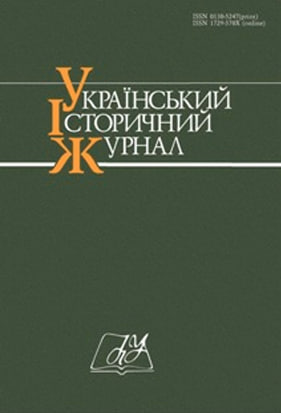Gender Attitudes and Practices in B.Hrinchenko’s Family According to Ego-Documents
DOI:
https://doi.org/10.15407/uhj2022.03.119Keywords:
women’s question, Hrinchenko family, ego-documents, gender paradigm, gender-role stereotypes, women’s rights, emancipation, women’s movementAbstract
In modern historical science, there is a growing need for a new vision of the past, which is not only about the “external” history of important processes and phenomena, but also about the “internal” history of subjects, “human” history. Sources of personal origin of the Hrinchenko family allow us to better understand the reasons and features of the inclusion of prominent personalities in the struggle for women’s rights in the late 19th – early 20th century.
The purpose of the study is to determine the role of leading intellectual families of Dnipro Ukraine in the formation of a new gender paradigm in the Ukrainian lands in the late 19th – early 20th century based on ego documents of Borys, Maria and Anastasiia Hrinchenko.
The methodology is based on the deconstruction of ego-document texts and individual-biographical and subject-activity approaches, which allow to outline the role of specific individuals in the formation of women’s issues in Dnipro (sub-Russian) and Western (sub-Austrian) Ukraine in the selected period.
The scientific novelty lies in the comprehensive study of ego-documents, which allowed to detail the peculiarities of the situation of women and the development of the movement for gender equality, which are difficult to describe holistically solely on the basis of mass documentary sources.
Conclusions. During the outlined chronological period, Ukrainian society continued to maintain conservative ideas about women’s domestic practices in the family and public life. The Hrinchenko family is an example of important historical changes that have taken place among intellectual families. Ego-documents demonstrate the important unity of the views of Borys, Maria and Anastasiia Hrinchenko on gender issues, which were expressed publicly, and daily routines, which fully corresponded to their worldviews. It is through such practices that gradual changes in the gender paradigm are taking place, from patriarchal domination to the gradual expansion of women’s rights.


